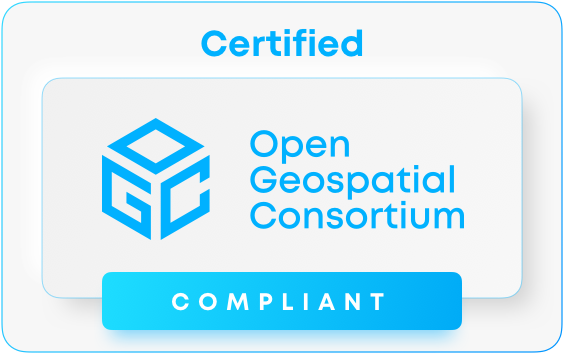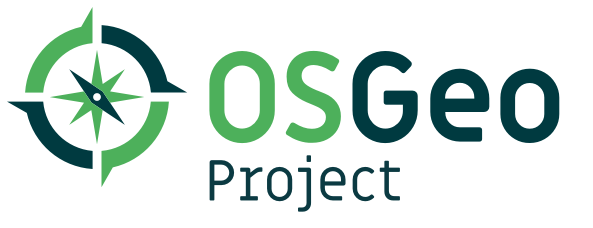-
-
Notifications
You must be signed in to change notification settings - Fork 265
ProjectGraduationChecklist
Based on the OSGeo Project Graduation Checklist version 2.0.
This checklist is based on the pygeoapi master branch at https://github.com/geopython/pygeoapi/tree/master)).
The project has demonstrated that it has an open, active and healthy user and developer community:
-
Open: projects are expected to function in an open and public manner and include:
-
Open source license(s),
-
code: MIT
-
Open communication channels,
-
Open decision making process.
-
A Project Steering Committee exists which implements RFC1. A process for Request for Comments (RFC) for significant changes to the source code has been articulated and in operation.
-
Active and healthy community:
-
The project should have a community of developers and users who actively collaborate and support each other in a healthy way. Eg. collaboration on project activities such as testing, release and feature development.
- Release processes and guidelines are open and documented at https://github.com/geopython/pygeoapi/wiki/ReleaseManagement
- Bugs and features on GitHub at https://github.com/geopython/pygeoapi /issues
- Discussion in mailing lists and Gitter
- https://pygeoapi.io/community provides an entry point for community engagement
-
Long term viability of the project is demonstrated by showing participation and direction from multiple developers, who come from multiple organisations. Eg. The project is resilient enough to sustain loss of a developer or supporting organisation, often referred to as having a high bus factor. Decisions are made openly instead of behind closed doors, which empowers all developers to take ownership of the project and facilitates spreading of knowledge between current and future team members.
- The project has 9 core developers from 9 organizations (National Technical University of Athens, GeoBeyond, ISRIC, Just Objects, Meteorological Service of Canada, United States Geological Survey). The pygeoapi project is designed with a core/extension/plugin pattern and thus allows for independent downstream development. There are numerous organizations developing and maintaining pygeoapi plugins independent of the core codebase
- Various statistics (including number of contributors) for the project can be found at https://www.openhub.net/p/pygeoapi
- Professional support options are being worked on in https://github.com/geopython/pygeoapi/issues/791
- Decisions are made openly via mailing lists/Gitter
- PSC meetings are documented on Gitter
- The project powers OGC API implementation of numerous high profile activities:
- MSC GeoMet OGC API platform
- public COVID-19 demo server
- US Internet of Water
- USGS Water Resources
- Natural Resources Canada Open Disaster Risk Reduction Platform (OpenDRR)
- EuroDataCube / EOX
- custom processing plugins for execution and workflow
- In support of an inclusive and welcoming community, the pygeoapi code of conduct can always be found at https://github.com/geopython/pygeoapi/blob/master/CODE_OF_CONDUCT.md
- The project also receives many contributions/fixes through GitHub.
We need to ensure that the project owns or otherwise has obtained the ability to release the project code by completing the following steps:
- All project source code is available under an Open Source license
- Project documentation is available under an open license (e.g. Creative Commons)
- The project code, documentation and data has been adequately vetted to assure it is all properly licensed, and a copyright notice (As per a Provenance Review) (done: https://github.com/geopython/pygeoapi/wiki/ProjectProvenanceReview)
- The project maintains a list of all copyright holders identified in the Provenance Review Document (done: https://github.com/geopython/pygeoapi/wiki/ProjectProvenanceReview#copyright-holders)
- All code contributors have agreed to abide by the project's license policy, and this agreement has been documented and archived (in progress: https://github.com/geopython/pygeoapi/issues/928)
- The project has code under configuration management (Eg, subversion, git.)
- Git: https://github.com/geopython/pygeoapi.git
- The project uses an issue tracker and keeps the status of the issue tracker up to date
- GitHub issues: https://github.com/geopython/pygeoapi/issues
- The project has documented its management processes. This is typically done within a Developers Guide or Project Management Plan.
- Developer's guide at https://docs.pygeoapi.io/en/latest/development.html and https://github.com/geopython/pygeoapi/wiki/Code-development-workflow
- Release packaging guide at https://github.com/geopython/pygeoapi/wiki/ReleaseManagement
- The project has a suitable open governance policy ensuring decisions are made, documented and adhered to in a public manner. This typically means a Project Management Committee has been established with a process for adding new members. A robust Project Management Committee will typically draw upon developers, users and key stakeholders from multiple organisations as there will be a greater variety of technical visions and the project is more resilient to a sponsor leaving. A PSC as well an RFC framework exist.
- The project uses public communication channels for decision making to maintain transparency. Yes, pygeoapi mailing list, IRC Channel, Gitter channel and GitHub issue tracker/wiki. See https://pygeoapi.io/community/ for more info.
- The project has user documentation:
- Including sufficient detail to guide a new user through performing the core functionality provided by the application.
- The project has developer documentation:
- Including checkout and build instructions. Yes, see https://docs.pygeoapi.io/en/latest/installation.html#for-developers-and-the-truly-impatient
- Including commented code, ideally published for developer use. Examples: javadocs for Java applications, or Sphinx documentation for Python. https://docs.pygeoapi.io/en/stable/api-documentation.html
- Providing sufficient detail for an experienced programmer to contribute patches or a new module in accordance with the project's programming conventions. Yes, see https://docs.pygeoapi.io/en/latest/api-documentation.html and https://docs.pygeoapi.io/en/latest/plugins.html. We also have a contributing guide at https://github.com/geopython/pygeoapi/blob/master/CONTRIBUTING.md as well as a code of conduct at https://github.com/geopython/pygeoapi/blob/master/CODE_OF_CONDUCT.md
In order to maintain a consistent level of quality, the project should follow defined release and testing processes.
- The project follows a defined release process:
- Which includes execution of the testing process before releasing a stable release
Yes, the full release process is documented step-by-step (https://github.com/geopython/pygeoapi/wiki/ReleaseManagement). We also have CITE compliance testing as part of the release process at https://github.com/geopython/pygeoapi/wiki/OGCCompliance)
- We are using GitHub Actions for CI testing on commits and pull requests to ensure proper testing and functionality*
- The project follows a documented testing process. Ideally, this includes both automated and manual testing. Ideally this includes documented conformance to set quality goals, such as reporting Percentage Code.
- Yes, automated testing through GitHub Actions
- Manual and automated testing occurs through the OGC-CITE (https://cite.opengeospatial.org) testing
- Unit tests exist at https://github.com/geopython/pygeoapi/tree/master/tests
- Release and testing processes provide sufficient detail for an experienced programmer to follow
- Yes, as noted above
The OSGeo Foundation is made up of a number of committees, projects and local chapters. This section gathers up information these groups have requested from OSGeo projects. These expectations are not mandatory requirements before graduation, but a project should be prepared to address them in order to be considered a good OSGeo citizen.
The OSGeo Board holds ultimate responsibility for all OSGeo activities. The Board requests:
- A project provide a Project Officer as primary contact
- select a project officer: TBD
- The Project Officer should be listed at Officers and Board of Directors and Contacts
- This person is established when the incubation committee recommends the project for graduation
- Your community can change the project officer as needed
- Add an agenda item to the next board meeting so they can recognise the change of officer.
Access to OSGeo's Marketing_Committee and associated Marketing Pipeline is one of the key benefits of joining the OSGeo foundation. The Marketing Committee requests:
-
Marketing artefacts have been created about the project in line with the incubation criteria listed in the OSGeo Marketing Committee's Marketing Artefacts. This lists the documentation requirements for OSGeo-Live. Marketing Artefacts include:
-
Application
-
Application Quick Start
-
Logo
-
Graphical Image
-
Ideally, stable version(s) of executable applications are bundled with appropriate distributions. In most cases, this will at least include OSGeo-Live, but may also include DebianGIS, UbuntuGIS, and/or osgeo4w, ms4w, etc.)
-
pygeoapi is part of OSGeoLive, UbuntuGIS, Conda, DockerHub, FreeBSD and PyPI. See https://pygeoapi.io/download and https://docs.pygeoapi.io/en/stable/installation.html for more information. The project also has promotional / marketing materials (stickers)
-
Projects do not exist in isolation; and are expected to communicate and collaborate on key issues.
pygeoapi works with both upstream (GDAL, PROJ, rasterio, shapely, etc. and downstream projects via msc-pygeoapi as well as the pygeoapi ecosystem of plugins
The System Administration Committee is available to help with infrastructure and facilities. Information for this committee is collected as part of the Project Graduation Checklist.
-
The following should be set up:
-
A http://projectname.osgeo.org domain name: Not requested: the osgeo.org website should link to https://pygeoapi.io
-
A project may optionally request SAC help to make use
-
OSGeo issue tracker: Not requested: pygeoapi issues are managed on GitHub
-
OSGeo mailing list: exists already
-
OSGeo svn: Not requested: pygeoapi source code is managed on GitHub
-
https://downloads.osgeo.org: Not requested: pygeoapi releases are made available on GitHub



